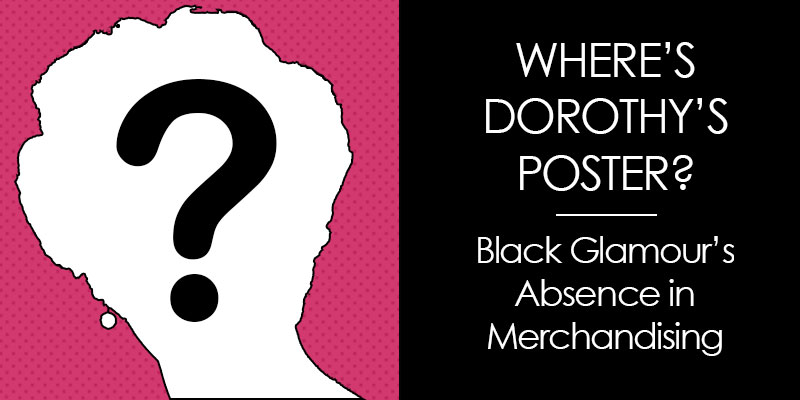This past weekend, I watched Carmen Jones and Gentlemen Prefer Blondes. Both films contained landmark roles that put the sex appeal and immense talent of Dorothy Dandridge and Marilyn Monroe on total display, respectively. I was completely taken by how these two women performed.
Over 60 years later, Marilyn’s likeness and influence are pop culture staples all over the world. Andy Warhol’s famous screen print portrait of Marilyn Monroe is currently displayed at the MoMA and has been reprinted hundreds of times. MAC Cosmetics even created a line of makeup inspired by her beauty. Her image and brand are constantly emphasized and reimagined; her glamour and lure continue to captivate because she was a clever character design — a fantasy tailor-made for America.
But with Dorothy Dandridge, there is no officially licensed poster. There are no designer label t-shirts or custom makeup lines celebrating her image. Marilyn’s brand and the estate has an array of products for sale, including stand-ups, vintage movie posters, calendars, and coffee mugs featuring Monroe’s image. In comparison, Dorothy has next to nothing in official memorabilia and or merchandising.

According to the U.S. Patent and Trademark offices, a trademark includes any word, name, symbol, or device used in commerce to identify and distinguish the authenticity of the seller to indicate the source of the goods. Marilyn Monroe’s likeness and trademarks are carefully curated and controlled by The Estate of Marilyn Monroe, LLC which is said to own six different marks of her name and signature. Marilyn Monroe, LLC is a joint venture composed of Monroe’s original estate, NECA, Inc., and licensing company Authentic Brands Group.

Deborah Gonzalez, Esq.
Deborah Gonzalez, an attorney who focuses on art, music, entertainment, digital, and social and online law, says “a public figure should have a will — this is something I recommend to all artists and celebrities.” Most properties and images of deceased Hollywood Legends, Black icons, in particular, are owned by corporations like CMG Worldwide and estate planners who are actively protecting their licensing and rights to their investments.(There are a few exceptions here, such as Kitt Shapiro daughter of Eartha Kitt and president of Simply Eartha, LLC and Eartha Kitt Productions.) “In [their] will, they can leave instructions allowing someone to inherit their copyrights and publicity rights. Without a will, it can be even longer as the court would have to determine who is the next of kin that may inherit [those rights],” Gonzalez says.
The estate of Dorothy Dandridge went to court over domain name usage in 2004. CMG Worldwide represented her estate in this claim. Since 2015, Dorothy’s estate has been canceled and abandoned, according to Datalog. This may mean Dorothy’s image and likeness are up for rediscovery. But in reference to usage, fair use is not an option as stated in Section 107 of the Copyright Act. Fair use only identifies particular uses for an image and/or likeness — criticism, comment, teaching, and research — meaning no design or designed objects are permitted for profit.

As you can see, legalities like this make it difficult when it comes to official merchandising for some of our Black glamour icons. Due to the research and effort put forth by institutions like The Schomburg Center for Research in Black Culture, The Library of Congress and experts like Nichelle Gainer, author of Vintage Black Glamour, their images and stories will never be forgotten. Let’s hope that our current generation of celebrities secures their rights so their legacies can live on into the future.


